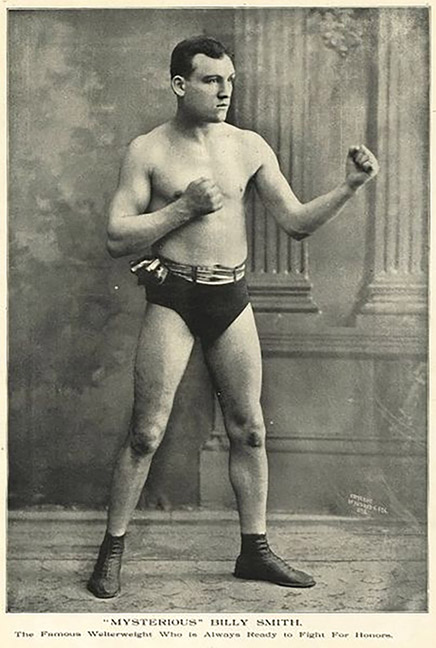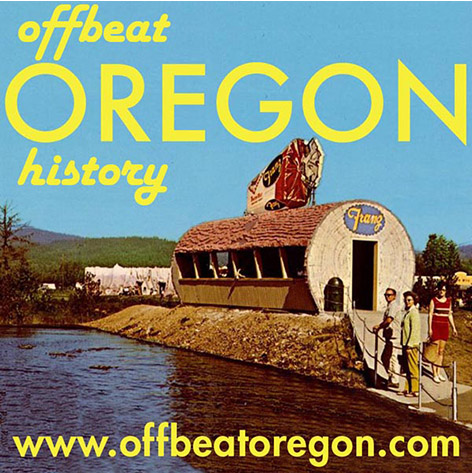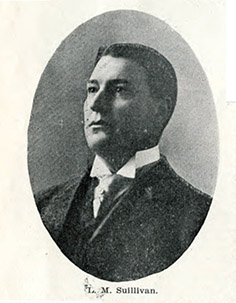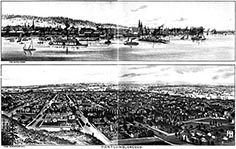EAST PORTLAND, MULTNOMAH COUNTY; 1900s:
World boxing champ by day, shanghaier by night
Audio version: Download MP3 or use controls below:
|

Billy was fined $25 for this little bit of horseplay. Larry, who had the good sense to leg it before the cops came, got off scot-free.
Although Billy and the White boys saw their operation as covering the east side and leaving the west side to Larry, Larry didn’t see it that way. For him, competition was competition. It was to be gotten rid of as expeditiously as possible. Of course, Larry’s usual way of doing this involved pounding heads “until they were soft.” He was a skilled and accomplished middleweight boxer, a talent that frequently came in handy when it came time for one of his guests to ship out and the guest was reluctant to fulfill his “obligation.” But Mysterious Billy was the welterweight champion of the world. And sure, as a middleweight Larry had a few pounds on him; but he was no world champion, and plus he was getting older. So Larry pulled some strings in the Legislature — and got Billy’s operation outlawed.
The new commission moved immediately to do exactly that. It issued pin-on badges to Larry and his employees identifying them as authorized crimps, and a letter to Billy and his partners ordering them to immediately cease and desist operations. The commission members justified this little exercise in “Conspiracy in Restraint of Trade” with the highly dubious claim that, by establishing a monopoly in the boardinghouse business, they were acting to reduce prices. And prices were a problem; since Turk’s death, Sullivan had consolidated his monopoly and used it to run the average blood-money bonus up over $100 a head; shippers had started avoiding the port, and consequently the cost of shipping sailors was on everyone’s mind. What Sullivan did was to boldly harness that sensitivity and use it to make things worse, while trying to convince everyone that it would actually make things better. It was rather like a fox arguing that the solution to a chicken predation problem was to license a single fox to eat all the chickens. The problem was, although the new commission had the law on its side, it had none of the popular respect and legitimacy that usually goes along with it. This was probably because, although it was fully empowered to revoke licenses for all violations of the state law (for instance, boarding incoming ships to entice sailors to desert, or charging $100 blood-money bonuses instead of the legally stipulated $30), it never did anything of the sort. Those practices went on unabated and unpunished. What the commission did do, at every opportunity, was to order all of Larry Sullivan’s competitors to go out of business. Those competitors, not surprisingly, challenged the commission’s authority, both in the courts and on the streets. We’ll talk about what sort of success they had, and how the Portland Shanghaiing Wars concluded, in Part Two.
|
Background image is a hand-tinted linen postcard view of Three Sisters from Scott Lake, circa 1920.
Scroll sideways to move the article aside for a better view.
Looking for more?
On our Sortable Master Directory you can search by keywords, locations, or historical timeframes. Hover your mouse over the headlines to read the first few paragraphs (or a summary of the story) in a pop-up box.
... or ...

©2008-2021 by Finn J.D. John. Copyright assertion does not apply to assets that are in the public domain or are used by permission.


